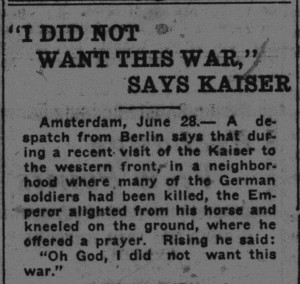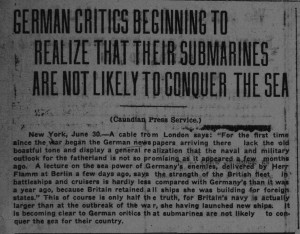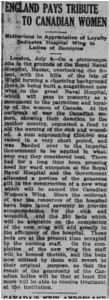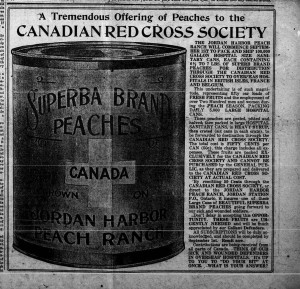 The warfare of the First World War involved new tactics and weapons that had not been utilized in war before. This also meant that it was expected this war would cause more blindness than previous wars as claimed by Vienna, Paris, and Montreal. While Ontario had a program in place for blind children, they did not have a suitable program for blind adults. Soldiers blinded in war should be able to receive proper instruction to enable them to integrate back into society and be contributing members of society rather than living the rest of their lives in despair.
The warfare of the First World War involved new tactics and weapons that had not been utilized in war before. This also meant that it was expected this war would cause more blindness than previous wars as claimed by Vienna, Paris, and Montreal. While Ontario had a program in place for blind children, they did not have a suitable program for blind adults. Soldiers blinded in war should be able to receive proper instruction to enable them to integrate back into society and be contributing members of society rather than living the rest of their lives in despair.
This article was not a call to arms to figure this issue out; it was ensuring citizens knew that this war was going to result in a large number of blind men due to the weapons and characteristics of this war, and a program to help these men had to be developed.
“Our Duty to the Blind,” Elmira Signet, August 5, 1915.
 A dispatch from Berlin, sent through Amsterdam, claimed that the German Kaiser went to the Western Front to a neighbourhood where many Germans had lost their lives. According to the dispatch, the Kaiser got off his horse and knelt on the ground and offered a prayer. As he rose, he proclaimed, “Oh God, I did not want this war.”
A dispatch from Berlin, sent through Amsterdam, claimed that the German Kaiser went to the Western Front to a neighbourhood where many Germans had lost their lives. According to the dispatch, the Kaiser got off his horse and knelt on the ground and offered a prayer. As he rose, he proclaimed, “Oh God, I did not want this war.”



